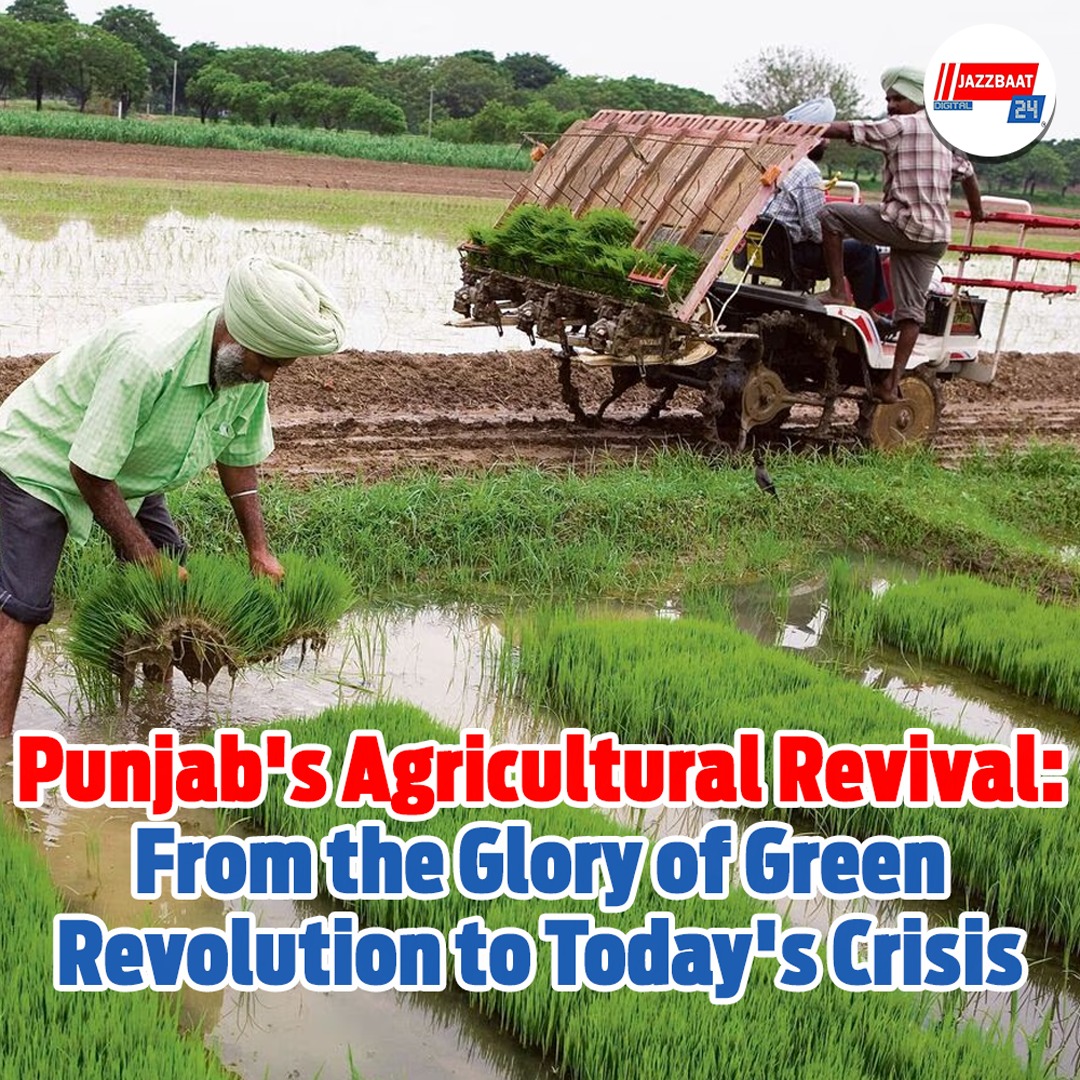
Punjab—once known as India's food bank. The state was the main stage of the Green Revolution of the 1960s. Punjab set an example of huge increase in agricultural production through advanced technology, high-yielding seeds, chemical fertilizers and irrigation. But the revolution that once made Punjab a symbol of self-reliance and pride, today the same agriculture is suffering from a deep crisis.
The Green Revolution has produced some serious consequences in the long run. Repeated dependence on one or two crops (especially rice and wheat) has reduced soil fertility. Excessive use of groundwater has brought down the water table of the region to a dangerous level. Water scarcity is the biggest enemy of Punjab's agriculture today. In addition, the indiscriminate use of chemical fertilizers and pesticides has led to environmental pollution and long-term impacts on public health.
On the other hand, the financial distress of farmers has intensified. Due to the lack of fair prices for crops, limited government support and the violence of middlemen in the market, farmers are on the one hand burdened with debt, and on the other hand, the number of suicides has increased alarmingly. The once innovative farmers today feel constrained and helpless.
To overcome this crisis, Punjab's agriculture will have to be rethought. First, crop diversification will be required. We will have to move away from the rice-wheat cycle and focus on less water-dependent and more valuable crops like pulses, oilseeds, fruits and vegetables. Second, we will have to lean towards organic farming and natural farming, so that the pressure on soil and water is reduced.
The government will also have to play a new role. Policy measures such as training for farmers, technical assistance and ensuring the right price are needed. Direct market access for agricultural products should be increased so that farmers are free from the hands of middlemen.
In addition, new employment opportunities will also be created by the expansion of agriculture-related industries such as food processing, packaging, etc. This will allow the younger generation to see agriculture as an alternative profession again.
The Green Revolution once took Punjab forward, but today a new kind of revolution is needed—one that protects the environment, financial stability, and the dignity of farmers along with production. Agriculture is not just a source of food, it is an integral part of Punjab’s culture and identity. Therefore, this revival is not just a financial challenge, but a social and moral responsibility.